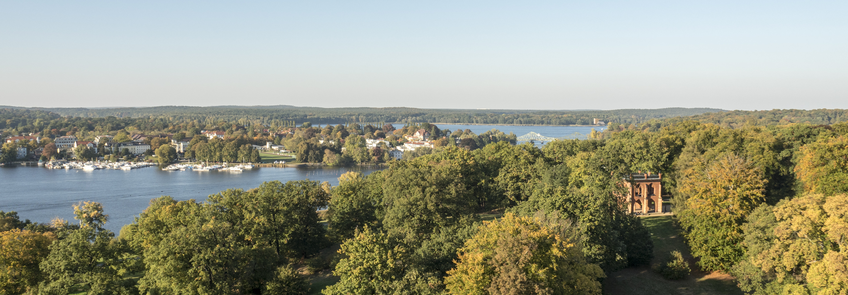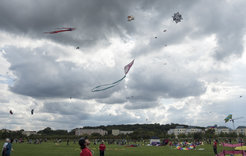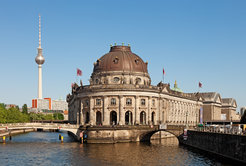
About Potsdam and Berlin
Potsdam is a medium-sized city which is consistently ranked among Germany’s cities with the highest quality of life. It is the capital of the German state of Brandenburg, and the location of numerous UNESCO World Heritage sites, among them Sanssouci Palace and Park, erected by Frederick the Great, as well as Cecilienhof Palace, where the Potsdam Conference was held at the end of World War II. Potsdam has a lively city-centre with many restaurants, Cafés, and museums.

The many parks and the city’s size make it ideal for cycling. Potsdam is also peacefully nestled between the lakes and forests of Brandenburg with many recreational activities, such as hiking and water sports. Albert Einstein had his summer residence near Potsdam. Besides its growing university, Potsdam houses three Max Planck Institutes (one of them our Albert Einstein Institute), the Leibniz Institute for Astrophysics, and other renowned scientific institutes covering topics ranging from climate research to information technology.

Potsdam is located in close proximity to Berlin, the capital of Germany and German’s biggest city. Around 100,000 people, about one fifth of them from all over the world, study at the four major universities of Berlin. Berlin hosts five Max Planck Institutes, as well as many other non-university research institutes.
Berlin is renowned for its colorful history, internationality and for its numerous cultural institutions. In Berlin you can choose between three major opera houses, 44 theaters and stages and more than 175 museums. The ensemble on the Museum Island is a UNESCO World Heritage Site. The Berlinale, the annual international film festival, is the largest publicly attended film festival worldwide.
And last, not least: Berlin’s nightlife is one of the most diverse and vibrant of its kind.

